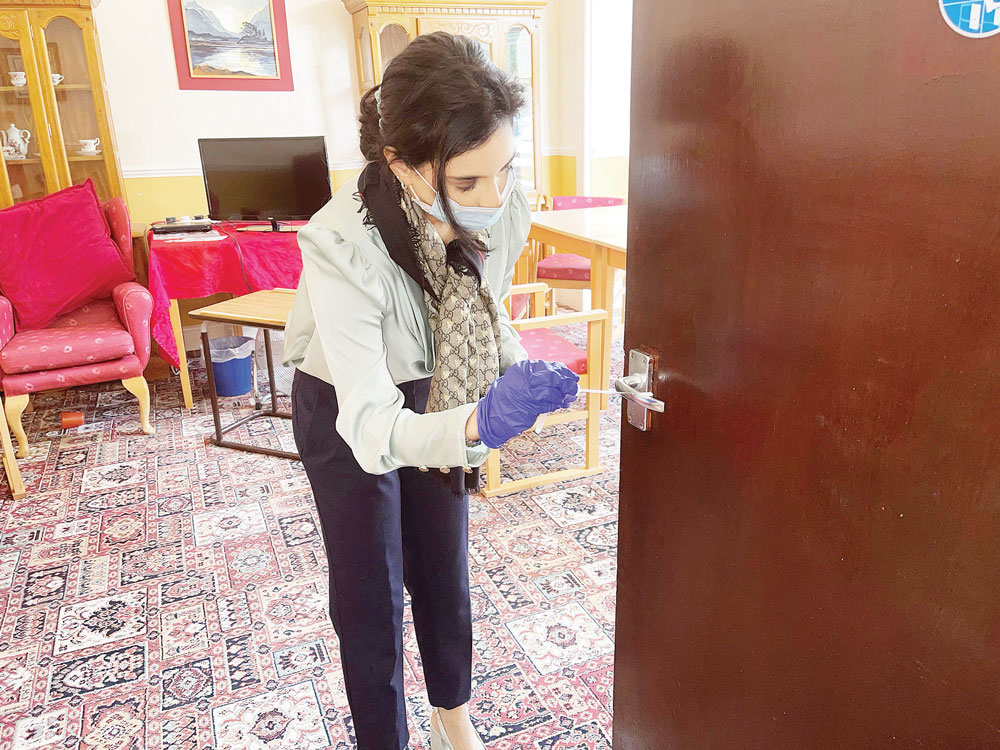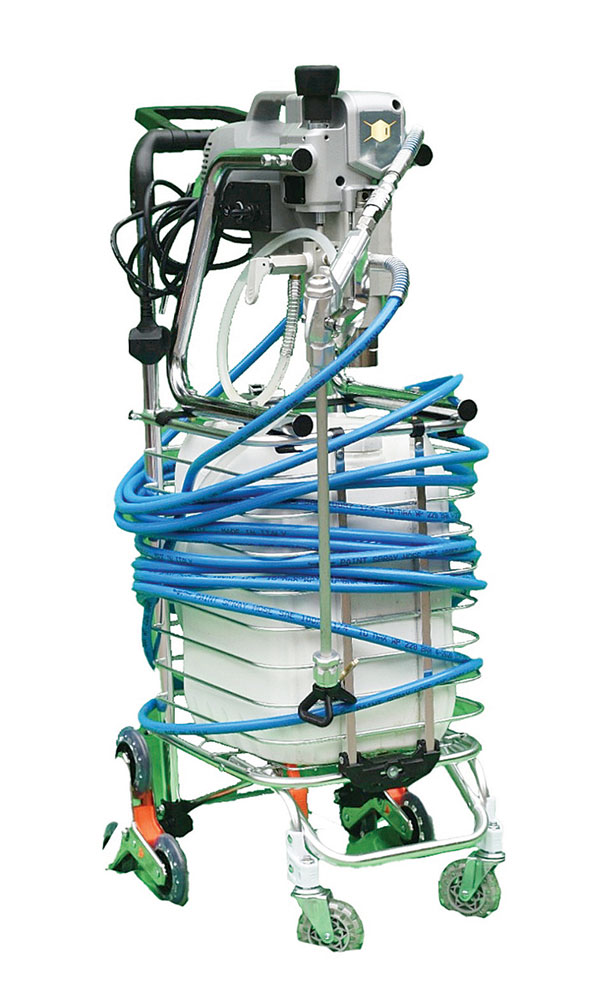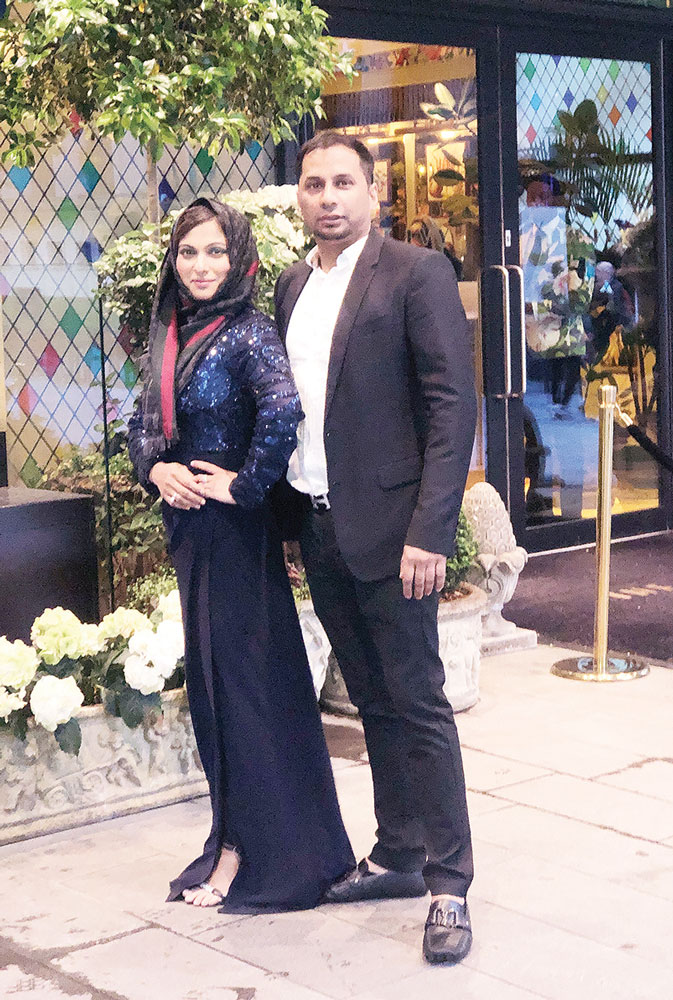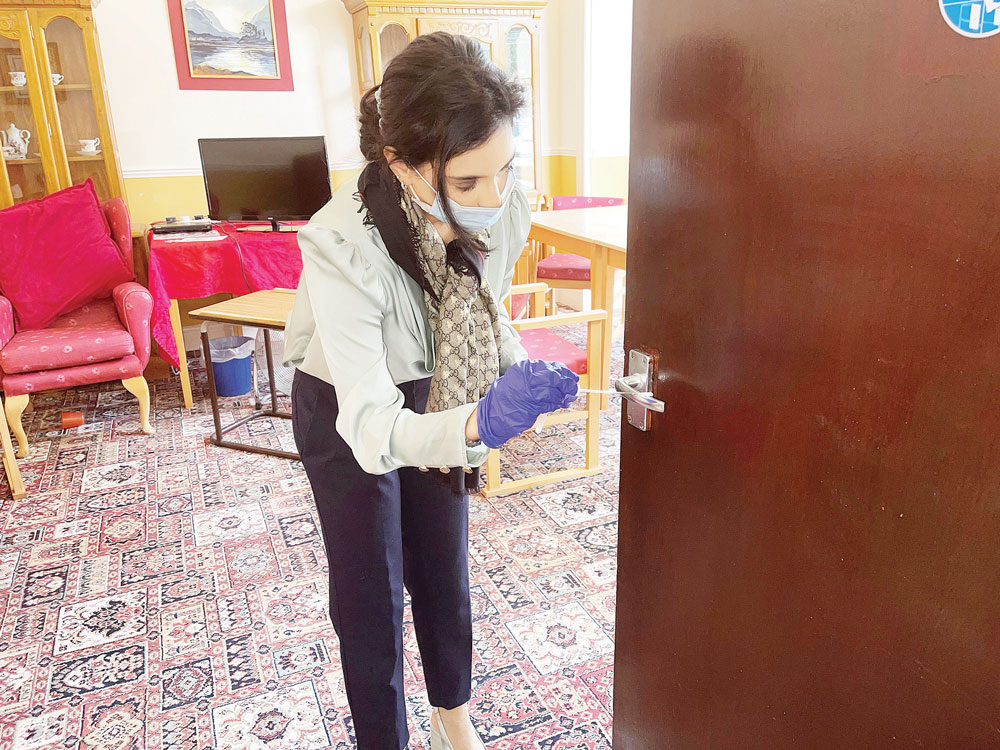Curry Life finds out how a young female scientist has gone from working in her family’s Indian restaurant to inventing and commercializing a spray to help combat Covid-19

Sadia Khanom had an interest in all things scientific from an early age and this has stood her in good stead. Aged just 26, she is the founder and managing director of Voltique, a business specialising in finding solutions to problems in the disinfectant industry. Its first product, named after the business and created by Khanom, is a formula that achieves a high level of disinfection, targeting and killing all strains of pathogens including coronavirus, for up to 14 days.

Based in Little Sutton in Chester, the idea for the spray came about while Khanom was preparing for a PhD in Alzheimer’s research and neurodegeneration at the University of Chester (she has a personal interest as her grandfather was diagnosed with the disease). She had already gained a degree in biomedical science at the University of Salford and a Master’s from the University of Chester.
Personal drive
“I wanted to help people with regards to Alzheimer’s and dementia as I was 14 when my grandfather was diagnosed and there was a lot of stigma surrounding these and other degenerative disorders at the time,” says Khanom. “This was when I knew I wanted to be a scientist. My interest is in genes and genetic make-up so there was a natural drive to help with the Covid-19 pandemic as it relies heavily on genome sequencing.”
There was another motivating factor too. Khanom’s parents own Indian restaurant Café India, where Khanom herself has been working since the age of 15. With the restaurant forced to close due to lockdown, Khanom could see first-hand the devastating effects of the disease. When lockdown was first announced in March 2020, the restaurant closed for six months.
“Being a scientist, initial reports of Covid-19 sparked my interest and I wanted to find out more about the disease, and I managed to find studies and publications previously released on coronavirus,” she explains. “There were already scientists publishing their own theories on the new strain of the virus so it was a very good time to find out more. Everyone was suffering globally and my parents’ restaurant was affected too. With transmission rates being a huge factor I wanted to explore how to get these to zero, by creating a longer-lasting disinfectant that is active on surfaces and that can continually kill viruses to lower the spread.”


As Khanom explains, her research led her to realise that there are many limitations within the disinfectant industry, such as harsh chemicals, or products with toxicological and respiratory effects. Any project looking to stem the effects of Covid-19 can be a long process, requiring patience and determination. Khanom spent 14 months researching and developing the spray, with help from her mentor, Colin Hagan, who specialises in scientific innovation.

Family inspiration
The spray, powered by electricity and dispensed via a machine, can be used in a range of settings, from hospitals to hotels and restaurants, among others. Khanom used her parents’ restaurant as a trial venue, testing the product on different surfaces, from leather to wood to fabric. The name ‘Voltique’ is derived from ‘volt’ and ‘electric’, with Khanom saying that the idea came from the fact that living things use electricity. She credits her parents’ outlook on life and the work they have put into the restaurant for motivating her to develop the breakthrough spray.
“My parents always taught me that humanity comes first no matter who you are,” she says. “We are born in this world for a reason, to make a difference and to follow our passion. It helped that I was interested in science from a young age and my parents have been very supportive. Being the eldest child, I felt it was my responsibility to do something and give back to society. I have seen my parents work so hard building their restaurant, that from a younger generation point of view, it feels natural to want to give something back.”
Her father Kabir Ahmed has also been a great inspiration to her on the creative front, with Khanom pointing out that her parents have a great working dynamic – her mother runs the operations side while her father manages the kitchen.
“They were in different fields of work before they decided to open the restaurant – they made the move because family and friends would often say how good my father’s cooking was,” explains Khanom. “It was a hobby before it was a business, and having grown up with it, I understand just how tough an industry it is. My parents also understand this and the last thing they want is for me to be tied to this industry. They have been very supportive of how I want to make a difference.”
She adds that with the curry industry, there is a stereotype of what curries should be like and her father wanted to change that, by using high-quality ingredients and combining this with creativity.

My Father has his own style of cooking, he uses the basis of curries but puts his own twist on dishes,” says Khanom.”It’s very much a family-run restaurant, we know what our customers want and it’s great to see that sense of satisfaction when you’ve been able to offer what they like.”
Khanom’s endeavours could also help to raise the profile of female scientists, another area she is passionate about. Being young and having not been in her field of science for very long, Khanom could have encountered some opposition to her invention.
“I knew exactly what I was doing and how certain I was about my product, which then led to a lot of support,” she says. “Women are certainly becoming more recognised as scientists – it is a long-term job and there is no guarantee you can find a solution, it’s quite rare. There are many women doing a Phd but the uncertainty of the whole career puts off younger women. I hope what I have done can help encourage them, by showing what’s possible if you put your soul into something.”
With £10m worth of orders from the likes of NASA and the NHS, Khanom appears to have hit the ground running with her product. In the near future, she is looking forward to continually refining the product, and says there is interest in developing a version in a hand-held bottle. There are limitations to this, however, as the product will lose some of its benefits if it’s in a bottle rather than dispensed via machinery.
“I want to make sure there are no limitations on the product and that it is the best it can be”, she says. “I’d also like to go back to my research on Alzheimer’s and possibly mentoring. I’d love to help the younger generation to follow their dreams and passions, especially in the field of science.”




